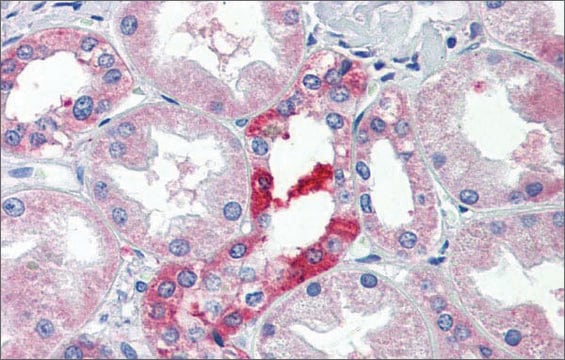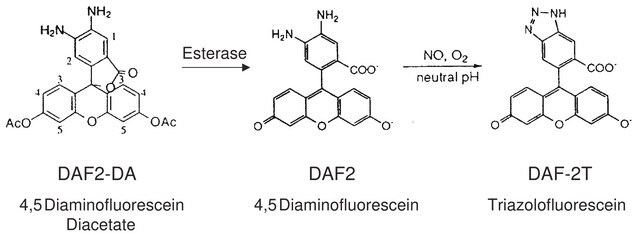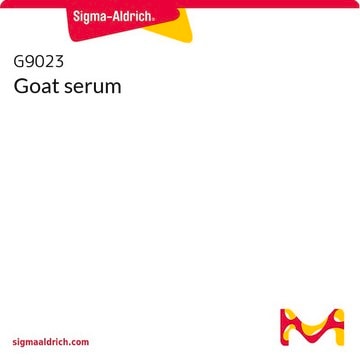ABS1051
Anti-Mitoferrin-1/Mfrn1 Antibody
serum, from rabbit
Synonym(s):
Mitoferrin-1, Mitoferrin-1/Mfrn1, Mitochondrial iron transporter 1, Mitochondrial solute carrier protein, Solute carrier family 25 member 37
About This Item
Recommended Products
biological source
rabbit
Quality Level
antibody form
serum
antibody product type
primary antibodies
clone
polyclonal
species reactivity
mouse
technique(s)
western blot: suitable
NCBI accession no.
UniProt accession no.
shipped in
dry ice
target post-translational modification
unmodified
Gene Information
mouse ... Slc25A37(67712)
General description
Specificity
Immunogen
Application
Signaling
Developmental Signaling
Western Blotting Analysis: A representative lot detected reduced mitoferrin-1 expression due to heterozygous gene trap insertion in the Mfrn1 gene (Mfrn1+/gt) and loss of mitoferrin-1 expression due to homozygous Mfrn1 gene insertion (Mfrn1gt/gt) in mouse embryonic stem cells (mESCs) undergoing primitive erythropoiesis (Chung, J., et al.(2014). J Biol Chem. 289(11):7835-7843).
Western Blotting Analysis: A representative lot detected upregulated mitoferrin-1 expression following DMSO-induced erythroid maturation in mouse erythroleukemia (MEL) cultures (Shah, D.I., et al. (2012). Nature. 491(7425):608-612).
Quality
Western Blotting Analysis: A 1:5,000 dilution of this antiserum detected mitoferrin-1 in mouse embryonic stem (mES) cell lysates.
Target description
Physical form
Storage and Stability
Handling Recommendations: Upon receipt and prior to removing the cap, centrifuge the vial and gently mix the solution. Aliquot into microcentrifuge tubes and store at -20°C. Avoid repeated freeze/thaw cycles, which may damage IgG and affect product performance.
Other Notes
Disclaimer
Not finding the right product?
Try our Product Selector Tool.
Storage Class Code
12 - Non Combustible Liquids
WGK
WGK 1
Flash Point(F)
Not applicable
Flash Point(C)
Not applicable
Certificates of Analysis (COA)
Search for Certificates of Analysis (COA) by entering the products Lot/Batch Number. Lot and Batch Numbers can be found on a product’s label following the words ‘Lot’ or ‘Batch’.
Already Own This Product?
Find documentation for the products that you have recently purchased in the Document Library.
Our team of scientists has experience in all areas of research including Life Science, Material Science, Chemical Synthesis, Chromatography, Analytical and many others.
Contact Technical Service








